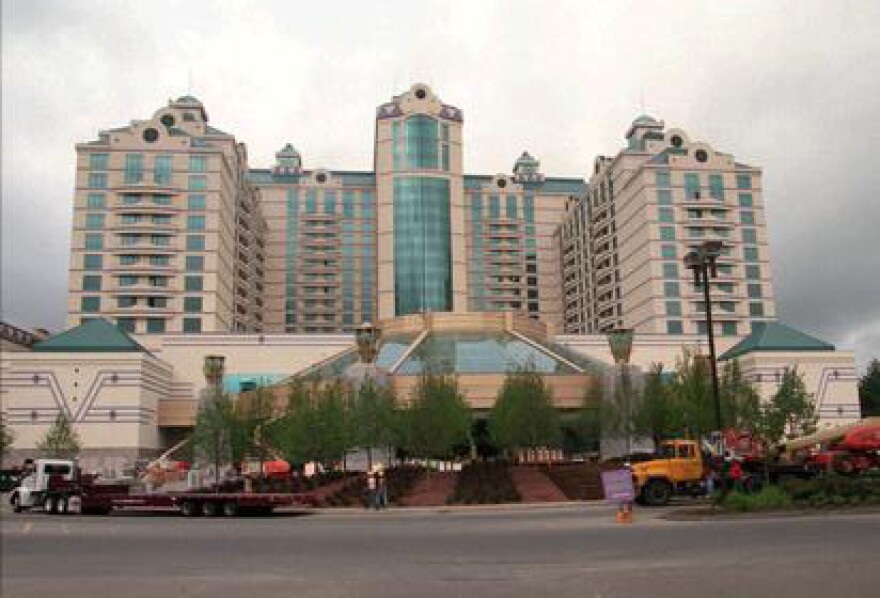Connecticut lawmakers are considering a bill that would establish a special working group to look into the issue of dual taxation on tribal territory.
The Mohegan and Mashantucket Pequot tribes, along with other federally recognized tribes across the nation, have been speaking out against the practice of local taxation on tribal land for decades.
Rodney Butler, chairman of the Mashantucket Pequot Tribe, told the Legislature’s Finance, Revenue and Bonding Committee, that this tax policy is “racist and unjust” and limits the tribe’s ability to engage in economic development.
Butler explained that as a sovereign nation, the tribe provides their own services, including a police force, firefighters, health inspectors, and water and sewer services.
The towns of Ledyard and Montville provide no municipal services or support to non-Indigenous property owners on tribal land, yet still levy a tax. This results in businesses, such as non-native restaurants and retail shops operated by Foxwoods and Mohegan Sun casinos, having to pay not only tribal taxes, but also local taxes, Butler said.
“We do assess fees within our lease agreements with many of these tenants for the services we provide,” he said. “And so any other jurisdiction layering in a personal property tax on top of that is a double tax on them and an economic hurdle for them to advance their businesses.”
Butler said this double taxation also hinders the tribe’s ability to attract businesses because it is often the greatest concern to negotiate with third parties who are interested in doing business on Mashantucket territory.
He explained that the Great Wolf Lodge coming to Mashantucket, a $300 million development that will employ 500 Connecticut residents, took two years to negotiate because of the tax policy issue.
While having this issue rectified would help attract economic development in the future, Butler said that’s not the main reason his tribe is speaking out. “This is a core sovereignty issue for us first and foremost,” he said.
The proposed working group would include the secretary of the Office of Policy and Management and chairs and ranking members of certain legislative committees. It would also include at least one representative of the Mohegan and Mashantucket Pequot tribes, and at least one representative of each town that would be impacted by the change.
While Butler supports the proposal for a working group, he thinks that the decision is simple.
“I don’t know that we need to study it for six months in order to determine what the outcome needs to be,” he said. “It’s a very clear and apparent injustice and it does not happen anywhere else in the state of Connecticut and if it were to happen, you guys would be all over it, screaming from the high hills to address it.”


